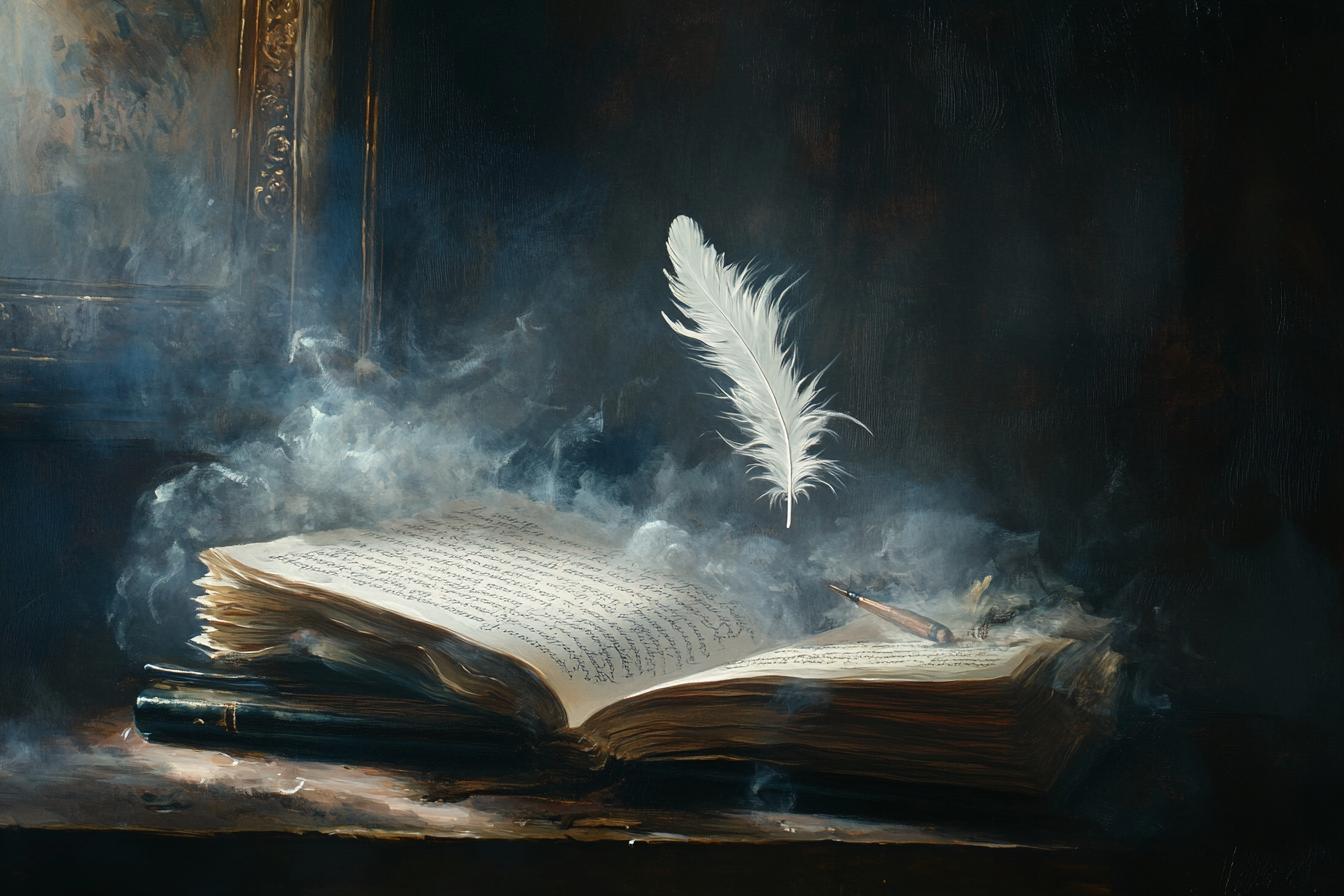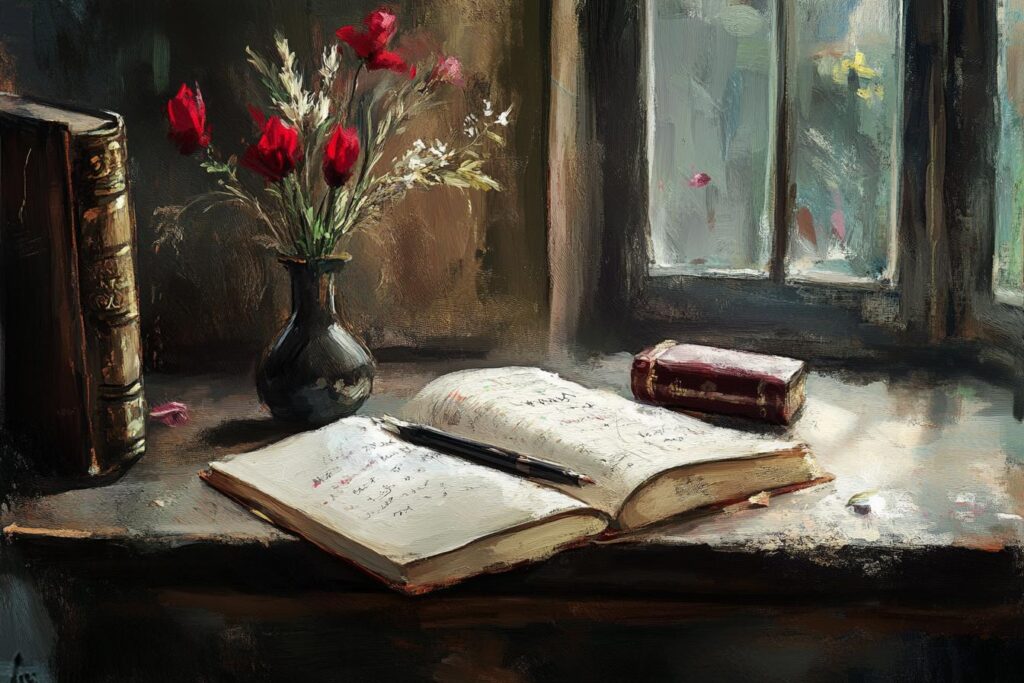Classic poetry, with its timeless themes and masterful use of language, offers a rich tapestry of insights into the human experience. By delving into the works of poets like Shakespeare, Keats, and Dickinson, we can gain a deeper understanding of emotions, relationships, and the complexities of life. Their words, crafted with precision and intention, allow us to explore universal truths about love, loss, joy, and sorrow. Consider, for instance, Shakespeare’s sonnets, which grapple with the passage of time, the nature of beauty, and the inevitability of death. Through his masterful use of metaphor and imagery, he allows us to see these timeless themes in a new light, sparking reflection and prompting us to ask fundamental questions about our own existence.
Moreover, classic poetry teaches us the power of language and its ability to shape our perceptions and evoke powerful emotions. The carefully chosen words, rhythms, and rhymes of these poems create a unique experience for the reader, transporting them to different worlds and perspectives. We can learn from the poets’ skillful use of language to create vivid imagery, evoke strong emotions, and convey complex ideas in concise and impactful ways. As we read these poems, we begin to appreciate the beauty and power of language, and we are inspired to use our own words more thoughtfully and effectively.

1. What Can We Learn from Classic Poetry
Classic poetry offers a window into the human experience, providing insights into emotions, thoughts, and societal values that transcend time. Through vivid imagery and powerful language, poets capture the essence of joy, sorrow, love, loss, and everything in between. By exploring themes of nature, mortality, and the search for meaning, classic poems illuminate the complexities of the human condition and encourage us to reflect on our own lives and perspectives.
Moreover, classic poetry teaches us the art of language and the power of words. Poets meticulously craft their lines, using rhythm, rhyme, and metaphor to create a tapestry of sound and meaning. Studying their techniques can enhance our own writing and communication skills, allowing us to express ourselves more effectively and engage with others on a deeper level.
2. Wisdom and insights on life
Classic poetry offers a treasure trove of wisdom and insights on life, often exploring timeless themes that resonate across generations. Poets, through their words, delve into the complexities of human experience, capturing the joys, sorrows, hopes, and fears that bind us together. They contemplate the nature of love, loss, mortality, and the search for meaning, providing us with a lens through which to examine our own lives and find solace in shared experiences.
Furthermore, classic poetry encourages us to embrace the beauty and wonder of the world around us. Poets, with their keen observation and evocative language, invite us to appreciate the simple pleasures of nature, the power of human connection, and the enduring strength of the human spirit. By exploring these themes, classic poetry reminds us of the fragility and preciousness of life, urging us to live each moment with intention and gratitude.
3. Beauty and Power of Language
Classic poetry, with its carefully crafted lines and evocative imagery, showcases the beauty and power of language. Poets use words to paint vivid pictures, evoke powerful emotions, and explore profound themes. They experiment with rhythm, rhyme, and meter to create a musicality that enhances the impact of their message. In doing so, they demonstrate the transformative potential of language to shape our understanding of the world and ourselves.
Beyond its aesthetic appeal, classic poetry also reveals the power of language to influence thought and action. Through the use of metaphor, simile, and other literary devices, poets can illuminate complex ideas, challenge societal norms, and inspire social change. By studying these works, we can learn to appreciate the nuances of language and its ability to move, persuade, and inspire. Moreover, we can develop our own capacity to use language effectively and creatively, whether in writing, speaking, or simply engaging with the world around us.
4. Understanding of human nature
Classic poetry offers a profound window into the human experience, providing timeless insights into our emotions, motivations, and flaws. Through the lens of verse, poets explore the complexities of love, loss, joy, and sorrow, capturing the universal truths that resonate across generations. By delving into the depths of human nature, classic poetry allows us to connect with our own inner world and better understand the experiences of others.
Furthermore, classic poetry often examines the themes of mortality, ambition, and the search for meaning, prompting readers to contemplate their own place in the world. By confronting these fundamental questions, classic poetry encourages us to reflect on our values, priorities, and the legacy we wish to leave behind. Through its rich tapestry of imagery and symbolism, classic poetry offers a powerful exploration of the human condition, enriching our understanding of ourselves and the world around us.
5. Historical and Cultural Context
Classic poetry offers a window into the past, revealing the thoughts, values, and experiences of people from different eras. By exploring the historical and cultural context in which a poem was written, we gain a deeper understanding of its meaning. For example, a poem written during a time of war might reflect the anxieties and hardships of that era. Similarly, a poem written in a society with strict gender roles might explore the limitations placed upon women. Understanding the historical context allows us to appreciate the nuances of the poem and see how it reflects the social and political climate of its time.
Furthermore, understanding the cultural context helps us grasp the poem’s cultural references and allusions. A poem might make references to myths, legends, or historical figures that were familiar to the original audience but might be unfamiliar to us today. By studying the cultural context, we can decipher these references and gain a richer understanding of the poem’s themes. This exploration of historical and cultural context allows us to connect with the past, appreciate the universality of human experience, and gain new insights into our own world.
6. Techniques of Effective Writing
Classic poetry, with its rich tapestry of language and imagery, offers a treasure trove of techniques for effective writing. One prominent technique is the use of vivid imagery, which allows the reader to experience the poem’s world through their senses. For instance, a poet might describe the “azure sky” or the “gentle murmur” of a stream, engaging the reader’s visual and auditory senses. Furthermore, classic poetry often employs figurative language, such as metaphors and similes, to create deeper meaning and understanding. These figures of speech help the reader see the world from a new perspective, drawing connections and creating a more profound experience.
Beyond imagery and figurative language, classic poetry also demonstrates the importance of rhythm and rhyme. The careful arrangement of words and sounds can create a powerful effect on the reader. This can be seen in the rhythmic flow of a sonnet or the musicality of a ballad. By studying these elements, writers can learn to create a sense of harmony and beauty in their own work. Ultimately, the techniques found in classic poetry offer valuable insights into the art of writing, encouraging writers to pay attention to language, imagery, and sound in order to create engaging and memorable work.
Conclusions
So, there you have it! Classic poetry isn’t just dusty old books gathering dust on a shelf. It’s a treasure trove of wisdom and beauty that can teach us so much. From the timeless insights on life and human nature to the raw power of language and the fascinating historical and cultural contexts, classic poems offer a window into the human experience. And let’s not forget the practical side—by studying the techniques of these masters, we can learn to write more effectively ourselves. Whether you’re a seasoned poet or just starting to explore the world of verse, classic poetry has something to offer everyone.
So, go ahead, dive into a classic poem. You might be surprised by what you discover!

